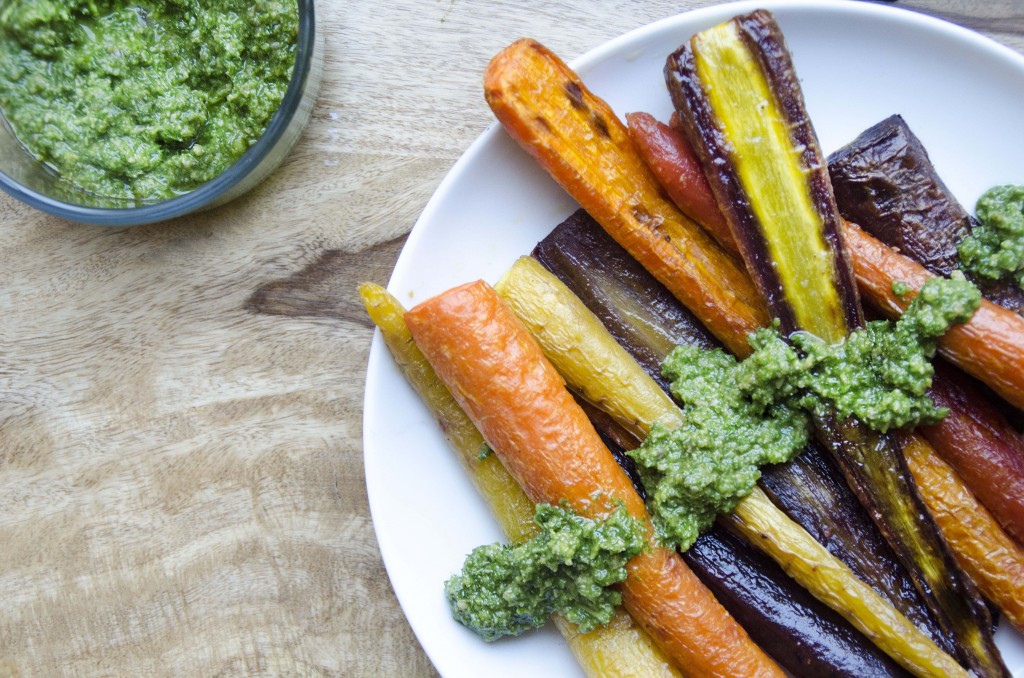
(Photo by Becky Hughes)

(Photo by Becky Hughes)
You may have heard Leo’s Oscar acceptance speech on the urgency of climate change. If climate change wasn’t already on your mind as something you need to think about, maybe it is now.

(Photo courtesy of ecowatch.com)
 climate change impact you? Well, more serious storms, worse allergens, weather-related deaths, disease, mental health issues, increased violence, and foods becoming more scarce or more expensive are just a few known impacts of rising temps. Yikes.
climate change impact you? Well, more serious storms, worse allergens, weather-related deaths, disease, mental health issues, increased violence, and foods becoming more scarce or more expensive are just a few known impacts of rising temps. Yikes.
Recently, Congress took Sustainable eating guidelines out of the the 2015 Dietary Guidelines (much, in part, due to angry protests by the meat industry), which was very controversial. But as global resources dwindle and global temps continue to rise, there’s certainly a shift towards eating more sustainably.
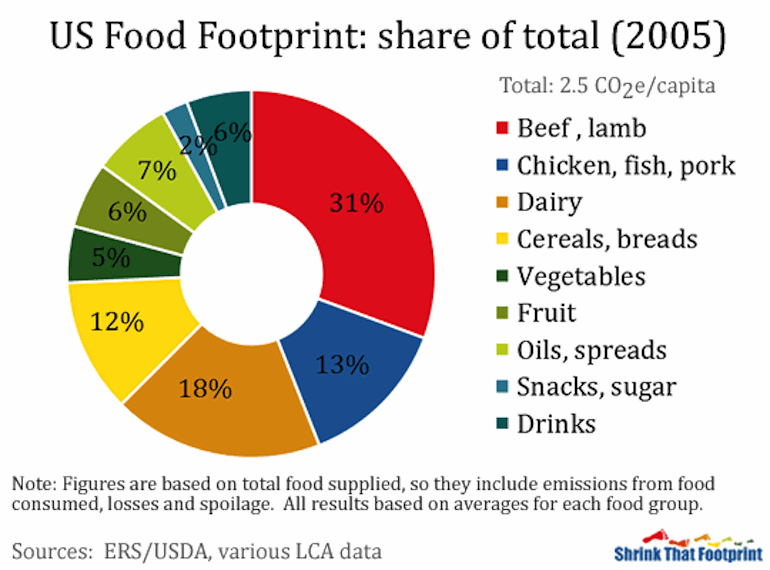
(Photo courtesy of shrinkthatfootprint.com)
If you want to do something about climate change, put yo’ money where your mouth is, and start making a few changes towards a more sustainable diet.
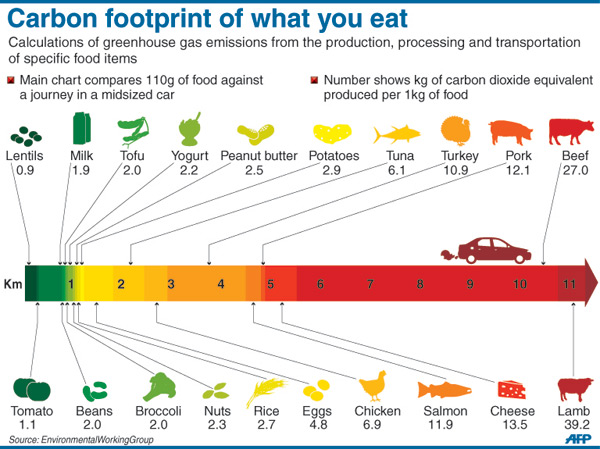
(Photo courtesy of shrinkthatfootprint.com)
You heard right. Meat, beef in particular, requires a huge amount of resources. For example, it takes 61.1kg of grain to make 1kg of beef. Oof. Why? The cows need to graze on something, and often in commercial farming (which actually sadly has a lower carbon footprint than grass-fed cattle farming), they’re fed soybeans and corn.
Not only do these crops need to be cultivated to feed the cows, but the methane from their poop contributes a huge amount of methane (a greenhouse gas) into the atmosphere.
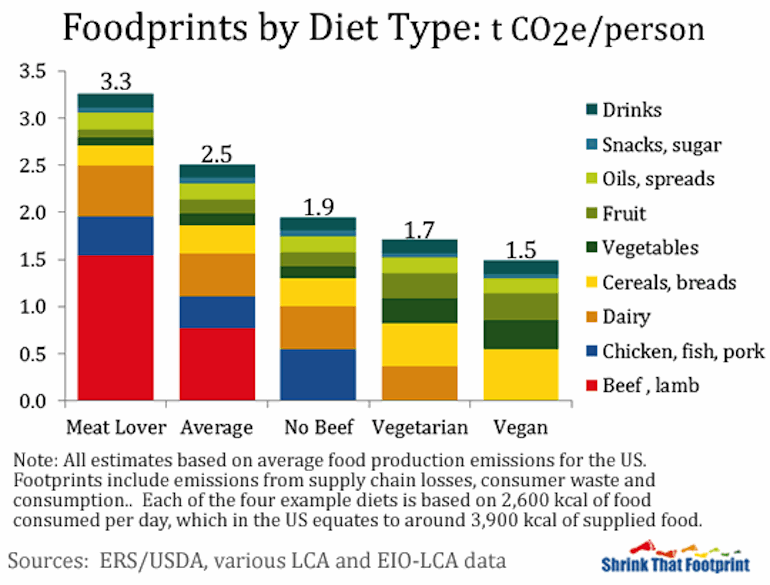
(Photo courtesy of shrinkthatfootprint.com)
Try some of these tasty vegetarian or vegan dishes once in a while, and taste how good sustainability can be. Leo and many other celebs are plant-based. Plants can be sexy, ya dig?
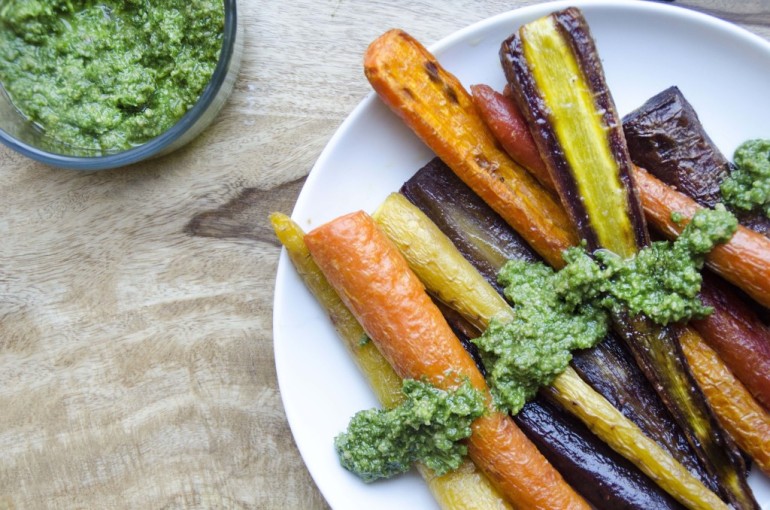
(Photo by Becky Hughes)
It’s estimated that nearly 40% of the food produced in the US goes in the garbage. If we can cut the food waste down, we can feed more people with less food, and stop filling up our landfills with food waste, which emits greenhouse gases.
Find out ways to reduce your food waste here, and #justeatit.

(Photo by Amanda Shulman)
Lots of food is transported all over the world for you to enjoy. This has increased the foods we have available to each of us, but it also takes time, money, and resources to transport food and produce. Go to the farmers market once in a while and get something that didn’t take a ton of gas or fuel to transport. Also, farmers markets often have a lot of yummy fresh fruitsand vegetables.

(Photo by Marissa Sherman)
With the current aquaculture practices, the fish supply is dwindling and its impacts on the environment are becoming more and more of a problem. If possible, look for sustainably-farmed fish. You can use this online resource to get started.
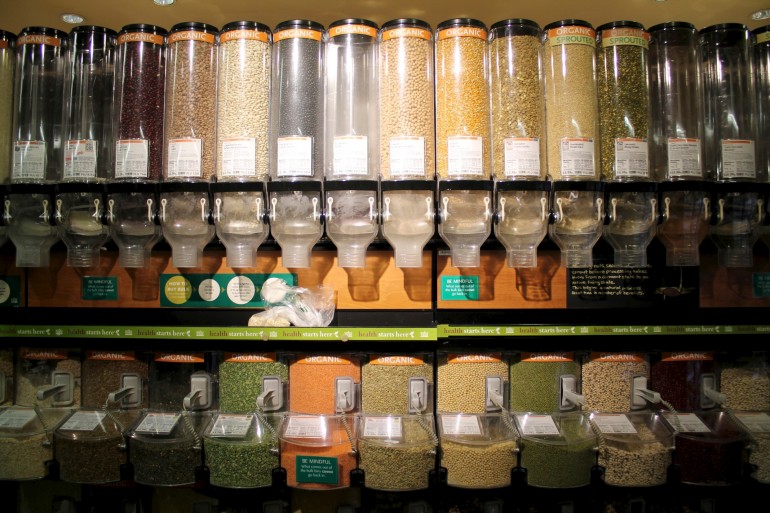
(Photo by Caty Schnack)
Simple matters of reducing your packaging can make a difference. Plus, bulk foods are often cheaper, and reusable grocery bags are totally in vogue right now.
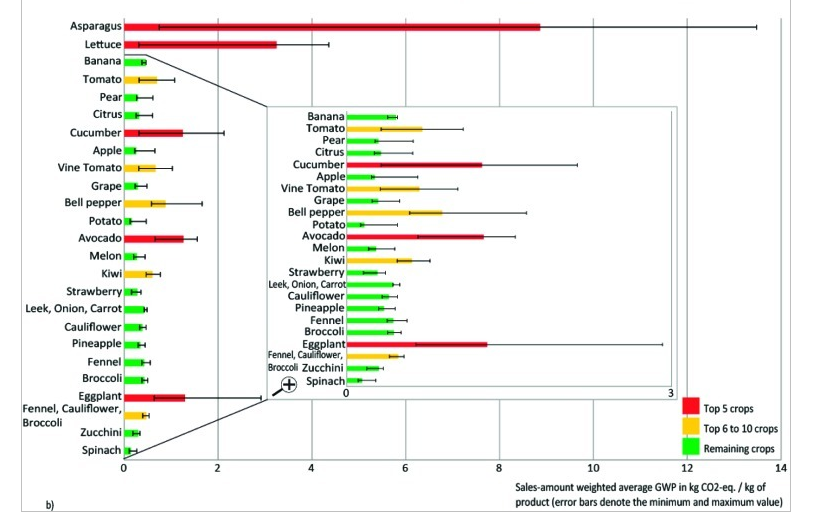
(Photo courtesy of Environmental Science & Technology)
You may have heard the stuff about almonds using a lot of water. Let’s clear a few things up on this: almonds grown in certain climates do require relatively more water than some other nuts (like walnuts) when grown in ingenious environments. But, this amount of water and carbon is minuscule compared to any meat product, so don’t be afraid to get nutty.
That being said, you can also select nuts (as well as oils, fruits, and vegetables) that have lower carbon and water footprints than others. Check out this article for more info.
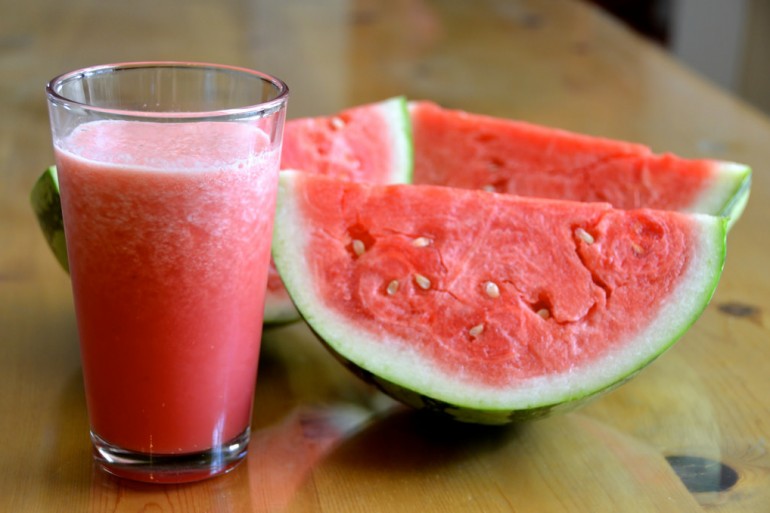
(Photo by Kathleen Lee)
Keep in mind that for lots of produce, it depends on where you live and how far the food has traveled. Super eco-friendly safe bets include watermelons, berries, pineapples, root vegetables (think sweet potatoes), tomatoes, lettuce, walnuts, chestnuts, soybean oil, rapeseed oil, and coconut oil. Larger offenders (though still eco-friendly compared to meat) include olive oil, figs, dates, asparagus and (tear) avocados.
It’s not as hard as it looks. Even reducing your meat intake once a week or investing in some reusable bags is a good place to start. If you need inspo, just think of Leo. He’s behind you.

(GIF courtesy of giphy.com.)
(Editor’s Note: This story originally published on Spoon University.)